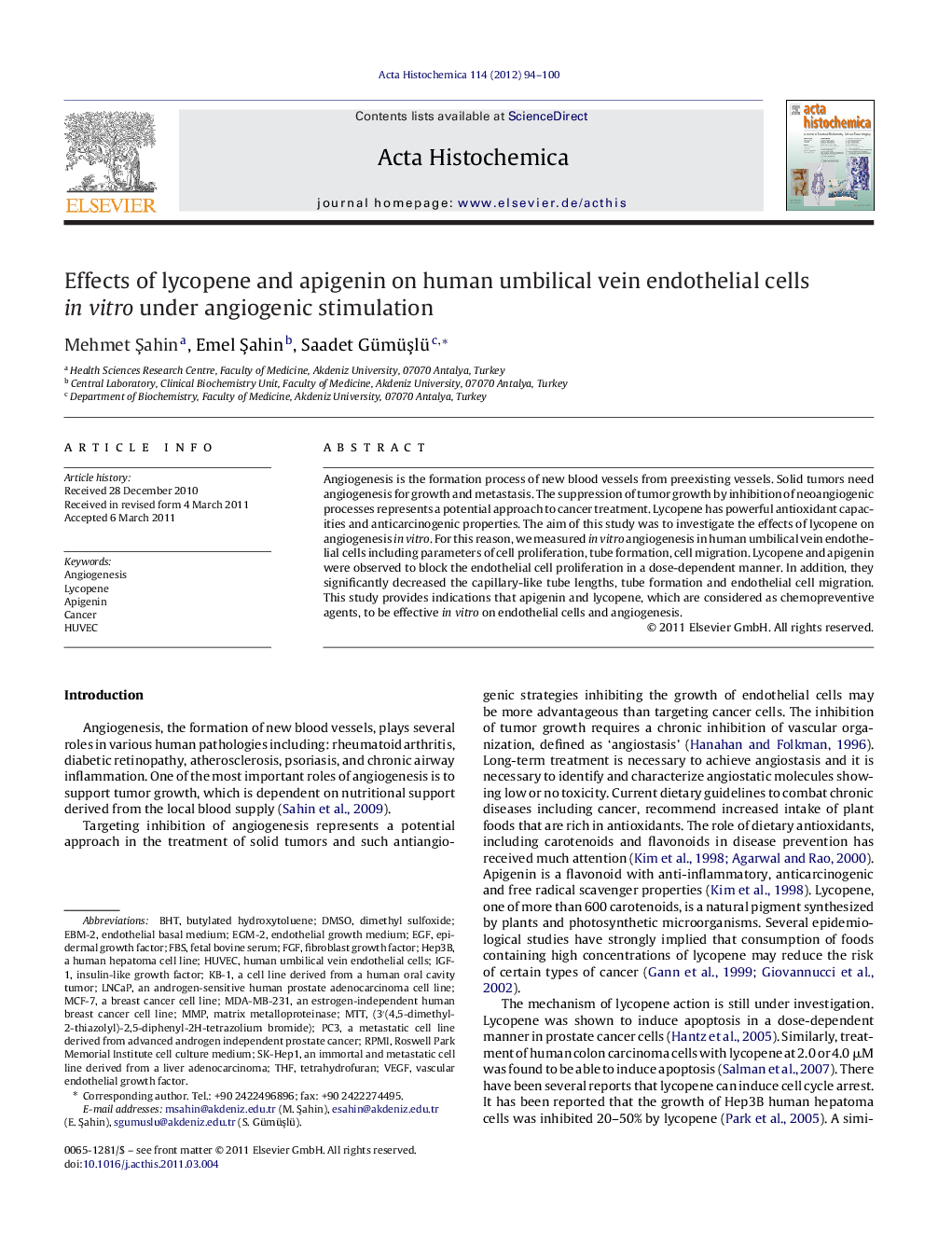| Article ID | Journal | Published Year | Pages | File Type |
|---|---|---|---|---|
| 10747258 | Acta Histochemica | 2012 | 7 Pages |
Abstract
Angiogenesis is the formation process of new blood vessels from preexisting vessels. Solid tumors need angiogenesis for growth and metastasis. The suppression of tumor growth by inhibition of neoangiogenic processes represents a potential approach to cancer treatment. Lycopene has powerful antioxidant capacities and anticarcinogenic properties. The aim of this study was to investigate the effects of lycopene on angiogenesis in vitro. For this reason, we measured in vitro angiogenesis in human umbilical vein endothelial cells including parameters of cell proliferation, tube formation, cell migration. Lycopene and apigenin were observed to block the endothelial cell proliferation in a dose-dependent manner. In addition, they significantly decreased the capillary-like tube lengths, tube formation and endothelial cell migration. This study provides indications that apigenin and lycopene, which are considered as chemopreventive agents, to be effective in vitro on endothelial cells and angiogenesis.
Keywords
MDA-MB-231MCF-7THFIGF-1BHTRPMIFGFEBM-2PC3FBSLNCaPHep3BEGFMMPEGM-2HUVECDMSOMTTAngiogenesisApigeninTetrahydrofuranDimethyl sulfoxideCancerfetal bovine serumHuman umbilical vein endothelial cellsepidermal growth factorVascular endothelial growth factorVascular Endothelial Growth Factor (VEGF)fibroblast growth factorInsulin-like growth factorLycopenematrix metalloproteinaseendothelial basal mediumendothelial growth mediumbutylated hydroxytoluene
Related Topics
Life Sciences
Biochemistry, Genetics and Molecular Biology
Biochemistry
Authors
Mehmet Åahin, Emel Åahin, Saadet GümüÅlü,
